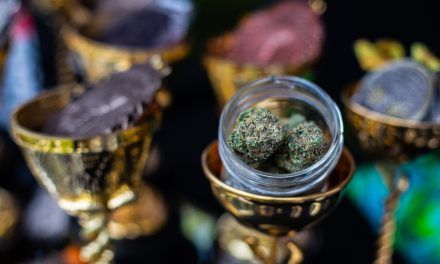Reword and rewrite the following article in HTML, use a hip journalistic writing style and make the heading statements in H3 or bold font where necessary: For many, the cannabis policy reform movement is rooted in the quest for personal liberty. Legalization isn’t just about getting high; it’s about being able to live your life the way you want to live it. In too many places, however, the legalization of cannabis does not include the freedom to grow the plant. Instead, cannabis patients and consumers are forced to participate in an overregulated and overtaxed market that not everyone can afford. The Freedom To Grow Depends on Where You Live A total of 25 states with legal weed have also legalized home cultivation, either for medical cannabis patients or all adults aged 21 and older, according to information from cannabis reform advocacy group the Marijuana Policy Project (MPP). But 15 states that have legalized pot (Alabama, Arkansas, Delaware, Florida, Kentucky, Louisiana, Mississippi, Nebraska, New Hampshire, New Jersey, North Dakota, Pennsylvania, Texas, Utah and West Virginia) still forbid home cultivation. Most of these states have only legalized cannabis for medical use. Delaware and New Jersey, however, have legalized recreational use but don’t allow home cultivation. Additionally, some states that have legalized home cannabis cultivation for some still deny many adults the right to grow. In Illinois and Washington, home cultivation has only been legalized for medical cannabis patients, while in Nevada, only those who live more than 25 miles from a licensed dispensary can grow their own weed. The fact that so many states that have legalized marijuana still deny the people the right to grow plants at home raises a fundamental question. Is cannabis really legal if you can’t grow your own weed? Cannabis Advocates Make the Case for Home Cultivation Many people, myself included, believe home cultivation is an essential piece of cannabis legalization, and states that deny the right to grow have failed to adopt comprehensive reform. If people can still be put in jail or fined for growing a plant, there is still more work to do. And the advocates I reached out to agree. Adam Smith, a longtime cannabis policy reform activist who was this month named executive director of MPP, says, “If you haven’t legalized home cultivation, you have not ended prohibition. You have simply created a corporate exemption.” “If we’re talking about prohibition, the first question is, ‘Can I grow and use this plant?’ And if I am not free to grow and use this plant, then we are still in prohibition,” Smith tells me in a recent interview. “And we’re really not a free society if the government can tell you you can’t grow a plant.” Smith notes that legalizing cannabis is especially important for medical cannabis patients who rely on a consistent supply of their medicine of choice. He adds that “banning home grow is particularly problematic in more rural states, many of which are medical-only, where both cost and distance can be prohibitive of legal access.?




